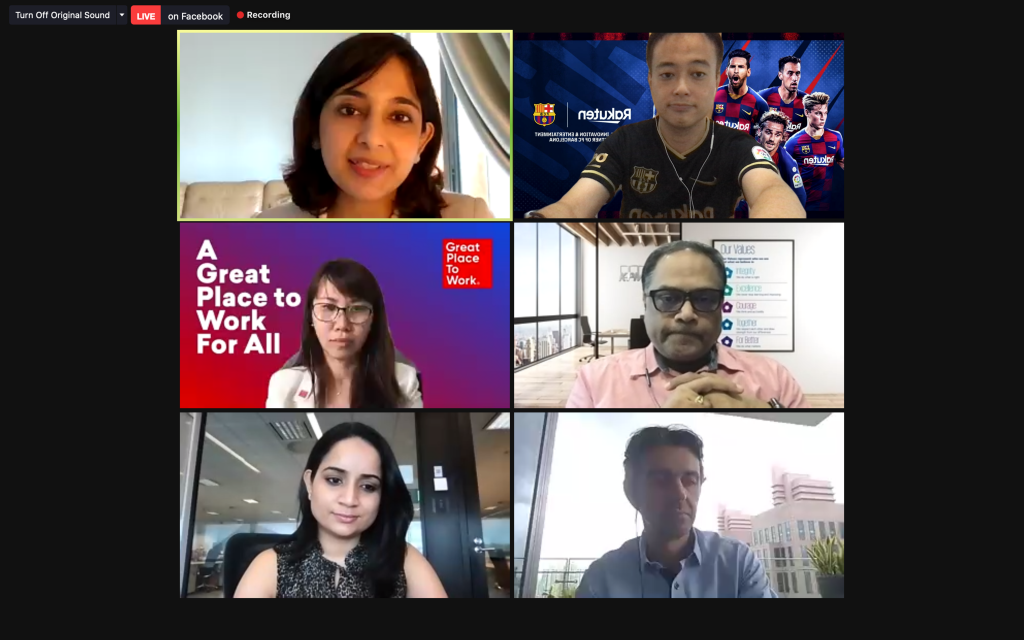On January 27, the Rakuten People & Culture Lab’s Tatsuo Hidaka participated as a panelist in a SPAG Dialogue webinar. SPAG Dialogue is an interactive platform highlighting the latest topics and global trends inside and outside the industry, planned and operated by Strategic Partners Group, an Asia-based PR consulting firm.
SPAG Dialogue: https://www.spag.asia/spag-dialogue.php
The discussion focused on “The Evolved Role of Leadership in Employee Engagement,” an urgent management issue that has emerged amid the growing number of people working from home due to the spread of the coronavirus. Aside from Rakuten, the webinar featured panelists heading Asian organizational HR for Great Place to Work, a co-sponsor of the event, and such global companies as IBM, KPMG, and Becton Dickinson, all of whom actively shared their views and opinions on the topic.
Creating a sustainable organization beyond the coronavirus response
One of the suggestions that emerged from the dialogue was the importance of considering the recent management issue of sustainability when applied to the field of organizational human resources. Viewing the new coronavirus as one of the environmental changes in the VUCA era, characterized by volatility and uncertainty, the matter of how to build sustainable relationships between organizations and individuals, which is not limited to the short-term response of shifting to remote work, is one that needs to be addressed.
The three essential elements of a sustainable organization: trust, safety, and well-being
To consider the relationship between sustainable organizations and individuals, one theme that was considered essential to pursue in the future was “trust.” And marking the starting point is ensuring “safety,” that is, not only the physical safety of employees, but also the issue of how to ensure the psychological safety of employees even when working in a remote environment. The panelists agreed that it is important for the company to support such “well-being” (a state in which a person is both physically and mentally well and is displaying his or her own individuality).
In addition, in response to questions from the moderator about connecting online with empathy, understanding, and care, various Rakuten People & Culture Lab undertakings being carried out as part of the Rakuten Group’s initiatives were introduced and well received. These included workplace creation and online meditation activities employing the 3 Key Elements + Breathing Space framework featured in the Collective Well-being Guidelines released in July last year.
*Collective well-being landing page(Japanese)

New roles for leaders: Culture engagement and low-context information sharing
With regard to the evolved role of leadership in employee engagement, the conference’s theme, the topic of culture engagement (the fostering of a corporate culture that attracts people) came up. Specifically, it was proposed that, when information is shared, the story’s background results and facts (context) be deliberately conveyed as clearly and simply as possible. There is a need to devise ways in which employees in various positions can share the same stories to find a common direction. It came as a surprise to the other panelists when they learned of Rakuten’s commitment to the low-context sharing of the company’s core values through such means as reading and dialogue sessions with founding management executives regarding management philosophy.
The Rakuten People & Culture Lab intends to continue exploring new relationships between organizations and individuals through these types of dialogue with global companies.

